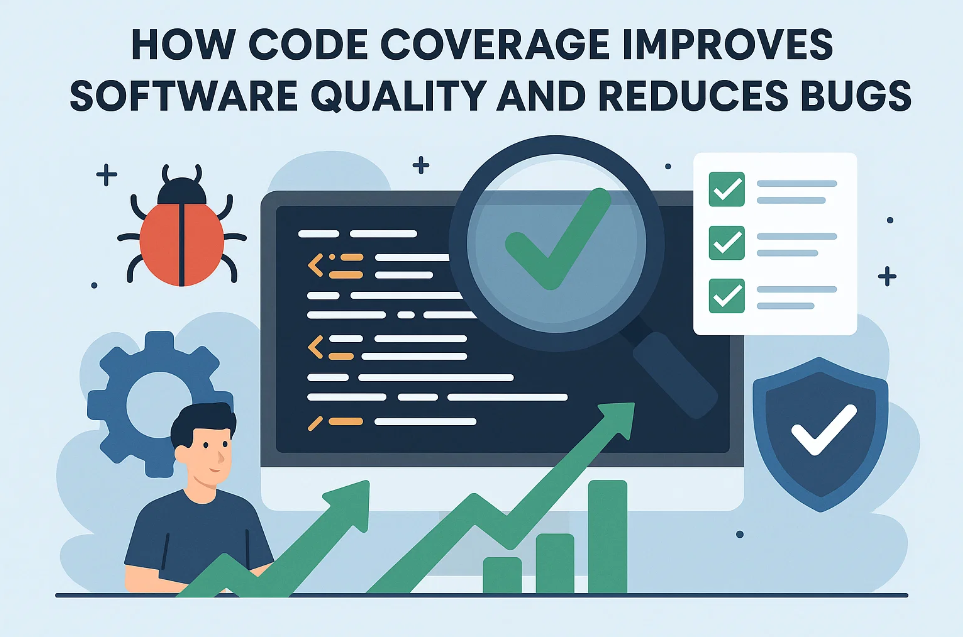You might think manufacturing is all about machines, sweat, and factory floors. Honestly, that image is changing faster than you can imagine. Industry 4.0 the fusion of automation, AI, IoT, and advanced analytics is rewriting the rules. Suddenly, traditional factories are turning into hubs of tech jobs, and if you’re looking for a career that blends engineering with cutting-edge technology, you might be in the right place.
But how exactly is this happening? Let’s break it down.
What Is Industry 4.0 and Why Should You Care?
Industry 4.0 isn’t just a buzzword. It’s the fourth industrial revolution, where digital technology, smart sensors, and cloud computing meet manufacturing. Think of it like this: factories are no longer isolated islands of machinery. They’re connected ecosystems where machines “talk” to each other, predict failures, and optimize production automatically.
You might ask, why does this matter for jobs? Simple. Every smart system needs someone to manage it, maintain it, and improve it. And this is where tech roles are exploding.
Can a Factory Job Be a Tech Job?
You bet it can. Let’s consider a typical assembly line. Before, operators ran machines manually, checking for errors by eye. Today, sensors monitor every movement, AI analyzes efficiency in real-time, and robots handle repetitive tasks.
So, what jobs are popping up?
- IoT Engineers – Designing sensors that capture machine data.
- Data Analysts – Translating raw numbers into actionable insights.
- Robotics Technicians – Installing, programming, and troubleshooting robots.
- Cybersecurity Specialists – Protecting sensitive production data.
- Software Developers – Creating the apps and platforms that connect it all.
Here’s the kicker: these roles didn’t exist 20 years ago. And for someone like you, who’s comfortable with coding, analytics, or systems design, manufacturing has suddenly become a tech playground.
How Automation Is Shifting Skill Requirements
Here’s the thing. Machines aren’t here to replace humans entirely. They’re here to make processes more efficient. That means the jobs are shifting from manual labor to cognitive and technical tasks.
You might be surprised. A factory floor once dominated by unskilled labor now requires critical thinking, problem-solving, and technical literacy. Operators are becoming data interpreters. Supervisors are becoming digital workflow managers.
This shift creates an entirely new ecosystem of roles:
- Predictive Maintenance Engineers – Using machine learning to anticipate failures.
- Digital Twin Specialists – Building virtual replicas of production lines for simulation.
- Cloud Platform Managers – Ensuring all IoT devices communicate securely.
- Augmented Reality (AR) Trainers – Teaching employees through AR overlays instead of manuals.
Notice how most of these roles are not just technical they demand creativity, analysis, and decision-making. And yes, it’s exciting.
Why Manufacturing Is Becoming a Talent Magnet
You might assume tech jobs are only in IT companies, right? Not anymore. Companies like Bosch, Siemens, Tata Steel, and Mahindra are hiring coders, AI specialists, and IoT engineers like never before.
Here’s why:
- Efficiency Drives Profit – Companies want faster, error-free production. Who can deliver that? People who understand both technology and manufacturing processes.
- Data Is Gold – Every machine generates data. Someone needs to analyze, secure, and act on it.
- Customization Is King – Consumers expect personalized products. Smart factories can deliver, but only with skilled tech teams.
Imagine a world where a smartphone factory adjusts production based on real-time customer demand. That’s Industry 4.0 in action and it requires people like you to make it happen.
How You Can Enter This Space?
Okay, let’s get practical. You’re interested in manufacturing tech jobs, but where do you start?
- Upskill Yourself – Courses in AI, IoT, robotics, or data analytics are extremely valuable. You don’t need a PhD; certifications or practical projects work wonders.
- Network Strategically – Platforms like Aplus Hub connect you directly to headhunters, hiring managers, and mentors. You can reach multiple professionals at once, increasing your chance of landing the perfect role.
- Showcase Hands-On Projects – Whether it’s programming a Raspberry Pi for sensor data or building a mini-robotic arm, real-world projects impress employers more than just degrees.
- Embrace Hybrid Roles – Many jobs are a blend of traditional manufacturing knowledge and tech skills. Be open to learning both.
Honestly, if you approach this strategically, you can transition into Industry 4.0 roles even if your background is non-technical.
The Future: Where Tech and Manufacturing Collide
You’ve probably heard about smart factories, but here’s the thing: they’re just the beginning. AI-driven supply chains, autonomous forklifts, and digital twins of entire factories are coming faster than you think.
And with them? More tech jobs. More chances to innovate. More ways to shape the future of how we make things.
Imagine this: a factory that predicts demand before a product even launches. Sensors talk to AI, which updates robots, which adjust schedules automatically. Someone has to design, monitor, and improve that system. That someone could be you.
Why You Should Consider This Career Path
Here’s the simple truth: Industry 4.0 is transforming traditional manufacturing from a blue-collar image into a high-tech career hub. You get the chance to:
- Work at the intersection of physical and digital systems.
- Solve real-world problems using cutting-edge technology.
- Access competitive salaries and global opportunities.
- Build a career that evolves as technology evolves.
And if you think it’s intimidating, remember: everyone starts somewhere. Upskilling, mentorship, and platforms like Aplus Hub make the transition smoother.
Wrapping It Up
The landscape of manufacturing is no longer just about machines and sweat. Industry 4.0 is creating a tidal wave of tech jobs in factories, and these opportunities are ripe for people who are curious, adaptable, and tech-savvy.
You have the chance to step into a world where coding, data, robotics, and traditional production collide. Don’t wait for change to come to you be part of it.
Start exploring, start learning, and most importantly, start connecting. Platforms like Aplus Hub give you access to jobs, mentors, and professional networks that make it possible to jump into Industry 4.0 without guesswork. Your future in tech-driven manufacturing isn’t just coming it’s already here.
You’ve probably heard the buzz about remote jobs, how they’re the future, how they can save you hours of commute, and let you work from that cozy corner of your home. But beyond the catchy headlines, how do you actually land a remote job in India in 2025? Especially when competition is fierce and the job market keeps evolving. Let’s unravel this together, shall we?
So, are you ready to see where Industry 4.0 can take you?



Leave a Reply